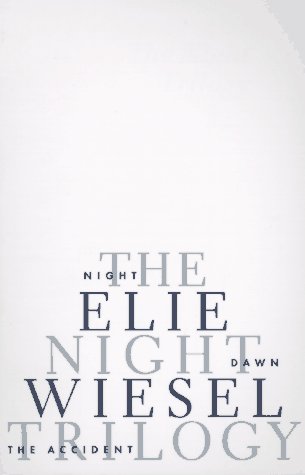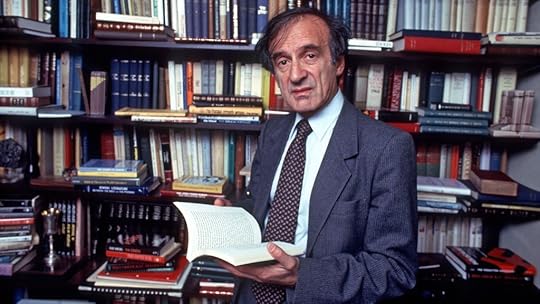What do you think?
Rate this book


317 pages, Paperback
First published January 1, 1961

Man raises himself toward God by the questions he asks Him. That is the true dialogue. Man questions God and God answers. But we can't understand His answers. We can't understand them because they come from the depths of the soul, and they stay there until death. You will find the true answers Eliezer, only within yourself.Life within Auschwitz involved a daily struggle to survive but also & perhaps more importantly to retain hope and to continue a belief in God's mercy for a young Jewish boy raised within a strong religious framework. Elie Wiesel was forced to constantly say Kaddish for fellow inmates of the concentration camp who were detained with him but also for his family and eventually for his own lost faith in God. As with any Holocaust story I am challenged to comprehend how anyone, especially a young boy had the reservoir of mental, emotional & physical strength to brave such horrors.
Why should I bless Him? In every fiber I rebelled. How could I say "Blessed are Thou, Eternal, Master of the Universe", because he had thousands of children burned & kept six crematories working night & day, He who chose us from among the races to be tortured day & night, to see our fathers, our mothers, our brothers end in a crematory? This day I had ceased to plead.Among the more memorable scenarios within Night is the image of a friend named Juliek, a boy who struggles on with Elie Wiesel, Elie's father & countless others on yet another involuntary pilgrimage when the camp administrators envision fast-approaching Russian troops & are forced to flee with their surviving captives. Juliek has somehow retained the strength to keep his violin in tow during the brutal march, eventually countering his & the group's fading energy with some strains from the Beethoven Violin Concerto in the midst of a temporary encampment. Come morning, Juliek is dead & the violin smashed.
I was no longer capable of lamentation. On the contrary, I felt very strong. I was the accuser, God was the accused. My eyes were open & I was alone--terribly alone in a world without God & without man. Without love or mercy. I had ceased to be anything but ashes, yet I felt stronger than the Almighty, to whom my life had been tied for so long. I stood amidst those praying, observing it like a stranger.

"I swore never to be silent whenever and wherever human beings endure suffering and humiliation. We must always take sides. Neutrality helps the oppressor, never the victim. Silence encourages the tormentor, never the tormented."
— from Wiesel's Nobel Peace Price Acceptance Speech, held on 10 December 1986


